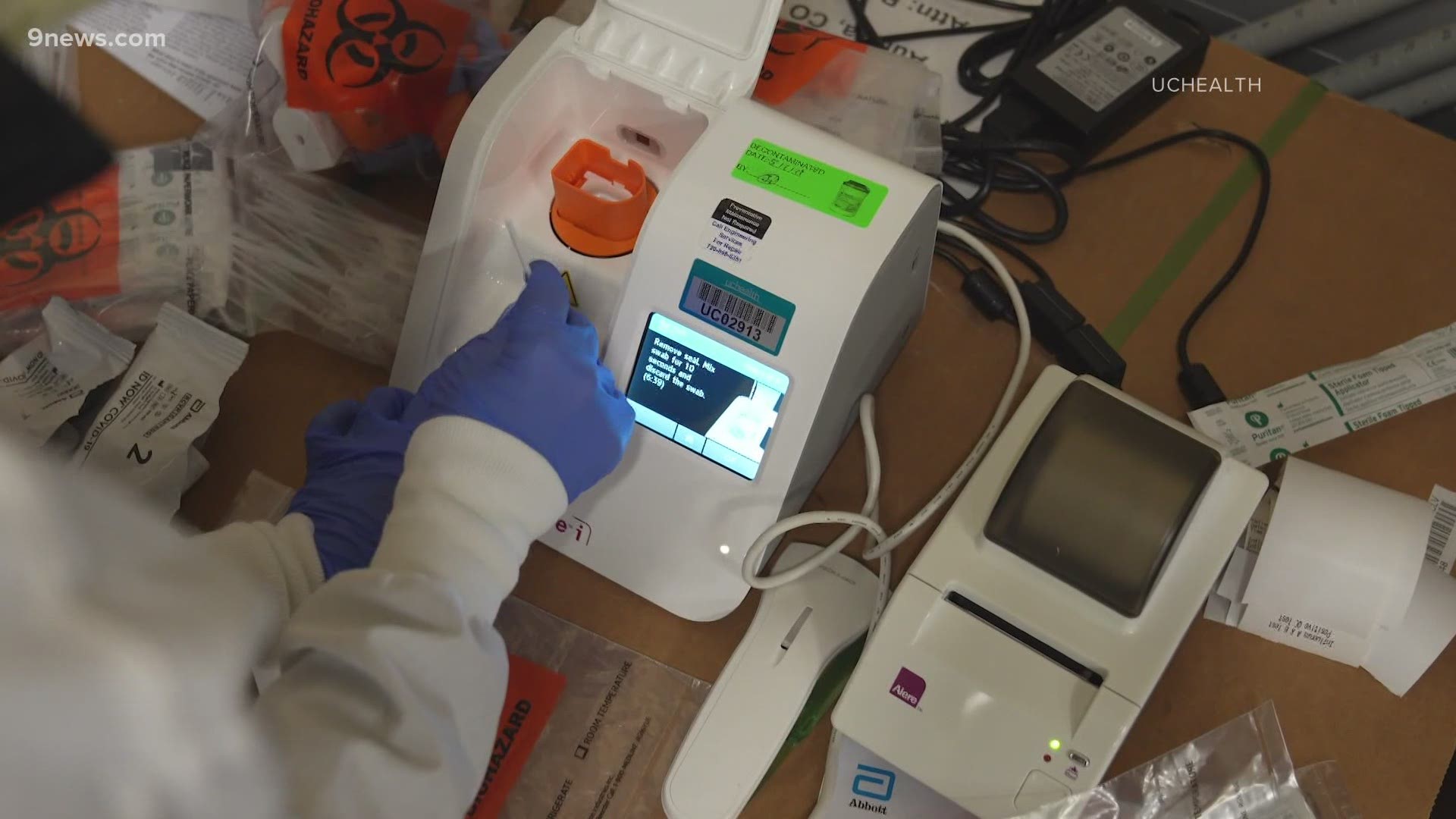COLORADO, USA — Research shows that newly diagnosed COVID-19 patients have the best results if they have access to monoclonal antibody treatment immediately to prevent severe illness and hospitalization, according to UCHealth.
Doctors at UCHealth are encouraging COVID patients, especially those who are high-risk, to seek out the therapy and ask their physician whether it is appropriate, even though the treatment has not yet been fully approved by the Food and Drug Administration (FDA).
>In the video above a Fort Collins man discusses his experience with the treatment
The antibodies work by blocking the virus that causes COVID-19 from attaching to human cells, making it more difficult for the virus to reproduce and cause harm, according to UCHealth.
RELATED: 'It was miraculous': Fort Collins man sees positive results from experimental treatment at UCHealth
There is strong evidence to support that using monoclonal antibody treatments early in high-risk COVID-19 outpatients can prevent hospitalization
Currently, the treatment is allowed under Emergency Authorization Use (EUA) through the FDA, but full approval is likely to come this summer, according to UCHealth.
In late November, UCHealth was able to provide the monoclonal antibody bamlanivimab at several of its locations around the state through a random allocation system.
RELATED: Some Colorado hospitals using lottery system to pick patients for experimental COVID-19 treatment
Now the infusion of either bamlanivimab/etesevimab (Eli Lilly) or casirivimab/imdevimab (Regeneron) is widely available for patients who meet the eligibility requirements.
Gary Springs, 81, and his 78-year-old wife, Sharon, were diagnosed with COVID-19 together in early December. They both had pre-existing medical conditions and were referred by their provider to receive monoclonal antibodies at UCHealth University of Colorado Hospital.
While Sharon didn’t meet the required criteria to receive the drug due to her oxygen-dependency levels upon arrival to the hospital, Gary was able to receive the infusion.
“I felt really good the next day and am so incredibly grateful," Gary Springs said. "My wife had to stay in the hospital for eight days, so it leads me to believe my recovery or outcome could have been different had I not received the treatment."
"Vaccines opening up to the broader population has been welcomed news. But, we are still treating a significant number of patients for the virus, and it’s accelerating at the moment,” said Dr. Adit Ginde, a UCHealth emergency medicine physician who has been leading a number of the COVID-19 drug trials.
“We now have greater access to proven therapies," Ginde said. "We need to reach the populations of Coloradans that are more at risk to get the disease and more at risk to be hospitalized. Monoclonal antibody treatment reduces risk of hospitalization and death by up to 90%. It just doesn’t get much better than that.”
People suspected of having COVID-19 or who have been newly diagnosed can reach out to UCHealth’s Virtual Urgent Care for a virtual visit to determine whether they meet the criteria. Providers can also reach out on a patient's behalf.
Infusions are now available at multiple UCHealth locations around the state, and so far more than 1,300 patients have received one of the antibody treatments.
A new $8.7 million grant from the National Institutes of Health (NIH) will assist with these efforts for the next two years at UCHealth and across the state of Colorado.
SUGGESTED VIDEOS: COVID-19 Coronavirus

